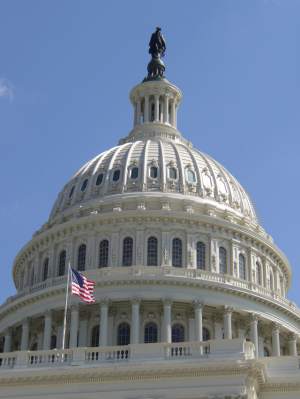by
Astrid Fiano, DOTmed News Writer | November 19, 2009

Read details of the Senate
health care reformbill
The Patient Protection and Affordable Care Act, on which Senate Majority Leader Harry Reid (D-NV) has been working for weeks, crafting it from two Senate Committee bills, was released Wednesday evening.
As previously reported, the bill has also been analyzed by the Congressional Budget Office (CBO). The 2,074-page bill is likely to go to the Senate floor this weekend for a full Senate vote. The purpose of that vote would be for cloture: to allow the bill to come to the floor for debate without filibuster. At this time, whether the bill has the support of all Democratic Senators or any Independents and Republicans is unknown. Sixty votes are needed for cloture.
The bill contains many familiar features touted in the health care reform debate, including: a prohibition on private health insurance companies denying coverage on the basis of pre-existing conditions; a mandate for legal residents of the U.S. to obtain coverage or face penalties; creation of insurance exchanges along with federal subsidies to reduce the cost of purchasing coverage for individuals and families with income between 133 percent and 400 percent of the federal poverty level (FPL); expansion of eligibility for Medicaid Starting in 2014 for most non-elderly people with income below 133 percent of the FPL; a requirement for employers with more than 50 employees not offering coverage to pay a penalty of $750 for each full-time worker if any of their workers obtained subsidized coverage through the insurance exchanges; eligibility for employers with relatively few employees and low average wages for tax credits to cover part of their contributions toward health insurance premiums; and a government-run public insurance option for which states may opt-out via legislation.
According to the CBO's and the staff of the Joint Committee on Taxation's (JCT) analysis, the projected net cost of the Act is $599 billion over 10 years for the proposed expansions in insurance coverage. That net cost involves a gross total of $848 billion in subsidies provided through the exchanges, increased net outlays for Medicaid, the Children's Health Insurance Program (CHIP), and tax credits for small employers. The costs are partly offset by $149 billion in revenues from the excise tax on high-premium insurance plans and $100 billion in net savings from other sources.
In the 2010-2019 period, the net cost of the coverage expansions would be offset by the combination of other spending changes estimated to save $491 billion and other provisions that JCT and CBO estimate would increase federal revenues by $238 billion. The gross total cost of $848 billion dollars is less than the recent House legislation. JCT and CBO estimate that the Act would result in a net reduction in federal deficits of $130 billion over the 2010-2019 period. In the following decade after 2019, the CBO/JCT estimates the gross cost of the coverage expansion would likely exceed one percent of gross domestic product; however, the added revenues and cost savings would probably be greater.
